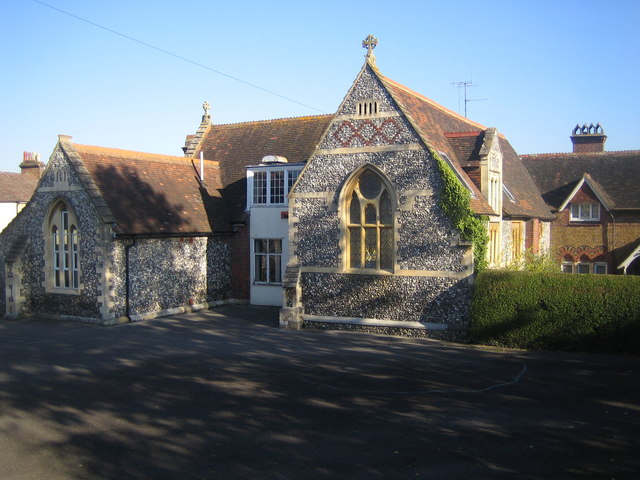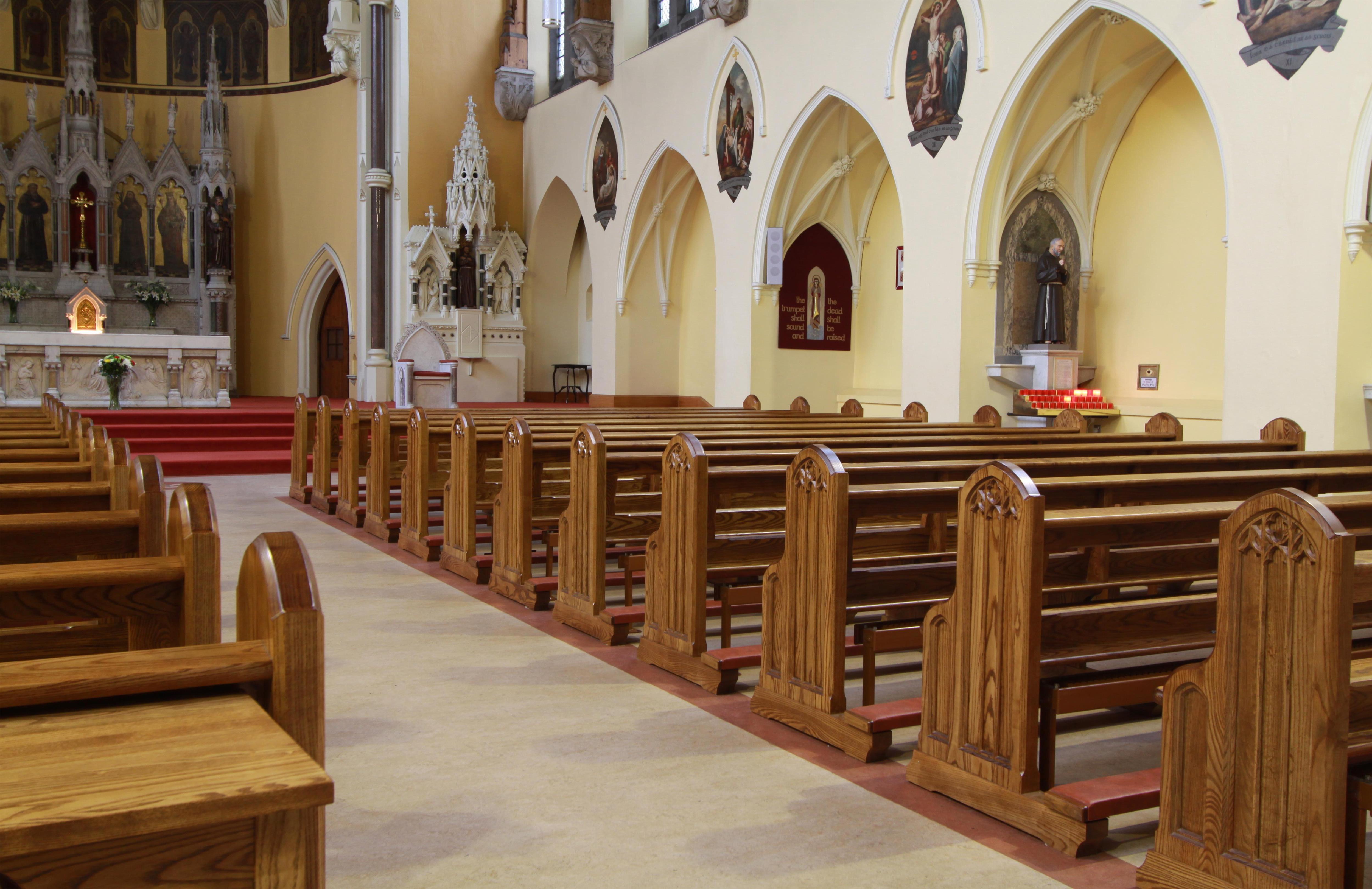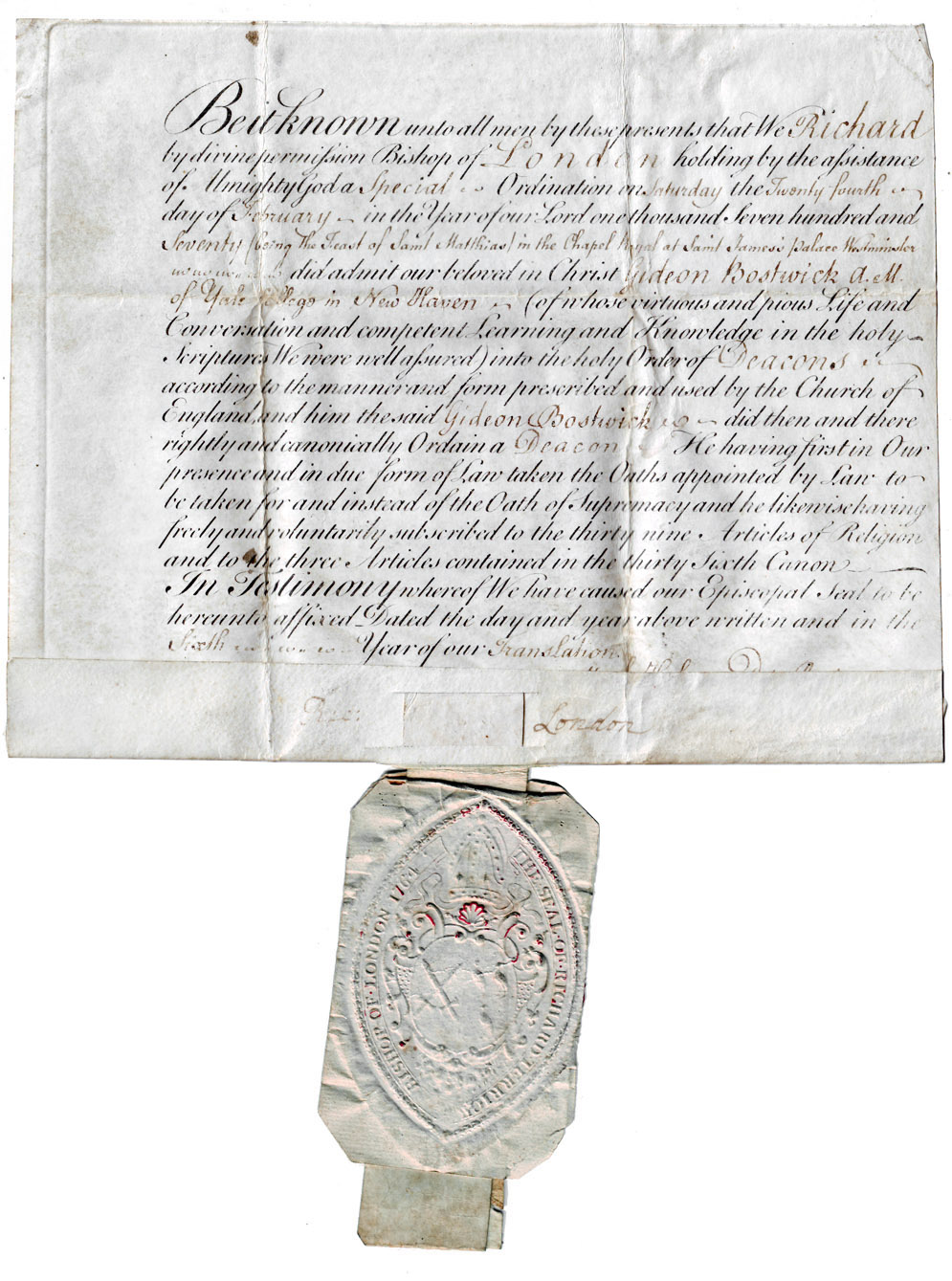|
St John The Baptist's Church, Leytonstone
The Church of St John the Baptist, Leytonstone, is a 19th-century Church of England parish church in Leytonstone, East London, occupying a prominent position in the High Road. It is a Grade II listed building. History Chapel of ease Leytonstone originally formed a part of the Civil parish#Ancient parishes, ancient parish of Leyton, for which the only Anglican place of worship was Leyton Parish Church. In 1748, some wealthy residents proposed that a chapel of ease should be built in Leytonstone, then a rural but prosperous village; one of them complained that "the inhabitants in general find it very inconvenient, and many utterly impossible, for them to resort thither [to Leyton] at least so frequently as they ought for ye public worship of God". Despite the opposition of the lord of the manor, David Gansel of Leyton Grange, and the ambivalence the Vicar (Anglicanism), vicar of Leyton, a plot of land was leased on the west side of Leytonstone High Road and a small chapel was buil ... [...More Info...] [...Related Items...] OR: [Wikipedia] [Google] [Baidu] |
Church Of England
The Church of England (C of E) is the State religion#State churches, established List of Christian denominations, Christian church in England and the Crown Dependencies. It is the mother church of the Anglicanism, Anglican Christian tradition, tradition, with foundational doctrines being contained in the ''Thirty-nine Articles'' and ''The Books of Homilies''. The Church traces its history to the Christian hierarchy recorded as existing in the Roman Britain, Roman province of Britain by the 3rd century and to the 6th-century Gregorian mission to Kingdom of Kent, Kent led by Augustine of Canterbury. Its members are called ''Anglicans''. In 1534, the Church of England renounced the authority of the Papacy under the direction of Henry VIII, beginning the English Reformation. The guiding theologian that shaped Anglican doctrine was the Reformer Thomas Cranmer, who developed the Church of England's liturgical text, the ''Book of Common Prayer''. Papal authority was Second Statute of ... [...More Info...] [...Related Items...] OR: [Wikipedia] [Google] [Baidu] |
Village
A village is a human settlement or community, larger than a hamlet but smaller than a town with a population typically ranging from a few hundred to a few thousand. Although villages are often located in rural areas, the term urban village is also applied to certain urban neighborhoods. Villages are normally permanent, with fixed dwellings; however, transient villages can occur. Further, the dwellings of a village are fairly close to one another, not scattered broadly over the landscape, as a dispersed settlement. In the past, villages were a usual form of community for societies that practice subsistence agriculture and also for some non-agricultural societies. In Great Britain, a hamlet earned the right to be called a village when it built a church.-4; we might wonder whether there's a point at which it's appropriate to talk of the beginnings of French, that is, when it wa ... ''village'', from Latin ''villāticus'', ultimately from Latin ''villa'' (English ''vi ... [...More Info...] [...Related Items...] OR: [Wikipedia] [Google] [Baidu] |
Assembly Rooms
In Great Britain and Ireland, especially in the 18th and 19th centuries, assembly rooms were gathering places for members of the higher social classes open to members of both sexes. At that time most entertaining was done at home and there were few public places of entertainment open to both sexes besides theatres (and there were few of those outside London). Upper class men had more options, including coffee houses and later gentlemen's clubs. Major sets of assembly rooms in London, in spa towns such as Bath, and in important provincial cities such as York, were able to accommodate hundreds, or in some cases over a thousand people for events such as masquerade balls (masked balls), assembly balls ( conventional balls), public concerts and assemblies (simply gatherings for conversation, perhaps with incidental music and entertainments) or Salons. By later standards these were formal events: the attendees were usually screened to make sure no one of insufficient rank gained ad ... [...More Info...] [...Related Items...] OR: [Wikipedia] [Google] [Baidu] |
National School (England And Wales)
A National school was a school founded in 19th-century England and Wales by the National Society for Promoting Religious Education. These schools provided elementary education, in accordance with the teaching of the Church of England, to the children of the poor. Together with the less numerous British schools of the British and Foreign School Society, they provided the first near-universal system of elementary education in England and Wales. The schools were eventually absorbed into the state system, either as fully state-run schools or as faith schools funded by the state. History Prior to 1800, education for poorer children was limited to isolated charity schools. In 1808 the Royal Lancastrian Society (later the British and Foreign School Society) was created to promote schools using the Monitorial System of Joseph Lancaster. The National Society was set up in 1811 to establish similar schools using the system of Dr. Andrew Bell, but based on the teachings of the Church ... [...More Info...] [...Related Items...] OR: [Wikipedia] [Google] [Baidu] |
Anglican Sacraments
In keeping with its identity as a '' via media'' or "middle path" of Western Christianity, Anglican sacramental theology expresses elements in keeping with its status as a church in the catholic tradition and a church of the Reformation. With respect to sacramental theology the Catholic tradition is perhaps most strongly asserted in the importance Anglicanism places on the sacraments as a means of grace, sanctification and forgiveness as expressed in the church's liturgy. When the Thirty-Nine Articles were accepted by Anglicans generally as a norm for Anglican teaching, they recognised two sacraments only – Baptism and the Eucharist – as having been ordained by Christ ("sacraments of the Gospel") as Article XXV of the Thirty-Nine Articles describes them) and as necessary for salvation. The status of the Articles today varies from province to province: Canon A5 of the Church of England defines them as a source for Anglican doctrine. Peter Toon names ten provinces as ... [...More Info...] [...Related Items...] OR: [Wikipedia] [Google] [Baidu] |
Consecration
Sacred describes something that is dedicated or set apart for the service or worship of a deity; is considered worthy of spiritual respect or devotion; or inspires awe or reverence among believers. The property is often ascribed to objects (a " sacred artifact" that is venerated and blessed), or places (" sacred ground"). French sociologist Émile Durkheim considered the dichotomy between the sacred and the profane to be the central characteristic of religion: "religion is a unified system of beliefs and practices relative to ''sacred things'', that is to say, things set apart and forbidden." Durkheim, Émile. 1915. '' The Elementary Forms of the Religious Life''. London: George Allen & Unwin. . In Durkheim's theory, the sacred represents the interests of the group, especially unity, which are embodied in sacred group symbols, or using team work to help get out of trouble. The profane, on the other hand, involve mundane individual concerns. Etymology The word ''sacred' ... [...More Info...] [...Related Items...] OR: [Wikipedia] [Google] [Baidu] |
Leasehold Estate
A leasehold estate is an ownership of a temporary right to hold land or property in which a lessee or a tenant has rights of real property by some form of title from a lessor or landlord. Although a tenant does hold rights to real property, a leasehold estate is typically considered personal property. Leasehold is a form of land tenure or property tenure where one party buys the right to occupy land or a building for a given time. As a lease is a legal estate, leasehold estate can be bought and sold on the open market. A leasehold thus differs from a freehold or fee simple where the ownership of a property is purchased outright and after that held for an indeterminate length of time, and also differs from a tenancy where a property is let (rented) periodically such as weekly or monthly. Terminology and types of leasehold vary from country to country. Sometimes, but not always, a residential tenancy under a lease agreement is colloquially known as renting. The leaseholder can r ... [...More Info...] [...Related Items...] OR: [Wikipedia] [Google] [Baidu] |
Pew Rent
A pew () is a long bench seat or enclosed box, used for seating members of a congregation or choir in a synagogue, church, funeral home or sometimes a courtroom. Occasionally, they are also found in live performance venues (such as the Ryman Auditorium in Nashville, which was formerly a church). In Christian churches of the Roman Catholic, Lutheran, and Anglican traditions, kneelers are an essential part of the pew, that are used during various parts of the liturgy. Overview The first backless stone benches began to appear in English churches in the thirteenth century, originally placed against the walls of the nave. Over time, they were brought into the centre of the room, first as moveable furniture and later fixed to the floor. Wooden benches replaced the stone ones from the fourteenth century and became common in the fifteenth. Churches were not commonly furnished with permanent pews before the Protestant Reformation. The rise of the sermon as a central act of Chris ... [...More Info...] [...Related Items...] OR: [Wikipedia] [Google] [Baidu] |
Stipend
A stipend is a regular fixed sum of money paid for services or to defray expenses, such as for scholarship, internship, or apprenticeship. It is often distinct from an income or a salary because it does not necessarily represent payment for work performed; instead it represents a payment that enables somebody to be exempt partly or wholly from waged or salaried employment in order to undertake a role that is normally unpaid or voluntary, or which cannot be measured in terms of a task (e.g. members of the clergy). A paid judge in an English or Welsh magistrates' court (England and Wales), magistrates' court was formerly termed a "stipendiary magistrate", as distinct from the unpaid "lay magistrates". In 2000, these were respectively renamed "district judge (magistrates courts), district judge" and "Magistrate (England and Wales), magistrate". Stipends are usually lower than would be expected as a permanent salary for similar work. This is because the stipend is complemented by other ... [...More Info...] [...Related Items...] OR: [Wikipedia] [Google] [Baidu] |
Bishop Of London
The bishop of London is the Ordinary (church officer), ordinary of the Church of England's Diocese of London in the Province of Canterbury. By custom the Bishop is also Dean of the Chapel Royal since 1723. The diocese covers of 17 boroughs of Greater London north of the Thames, River Thames (historically the City of London and the County of Middlesex) and a small part of the County of Surrey (the district of Borough of Spelthorne, Spelthorne, historically part of Middlesex). The Episcopal see, see is in the City of London, where the seat is St Paul's Cathedral, which was founded as a cathedral in 604 and was rebuilt from 1675 following the Great Fire of London (1666). Third in seniority in the Church of England after the archbishops of Archbishop of Canterbury, Canterbury and Archbishop of York, York, the bishop is one of five senior bishops who sit as of right as one of the 26 Lords Spiritual in the House of Lords (for the remaining diocesan bishops of lesser rank, seats are ... [...More Info...] [...Related Items...] OR: [Wikipedia] [Google] [Baidu] |
Samuel Bosanquet
Samuel Bosanquet (1744–1806) was an English merchant and banker. Life Samuel Bosanquet was born into an immigrant family of Huguenots, the son of Samuel Bosanquet (1700–1765) and his wife Mary Dunster. His sister Mary would go on to become one of the first female Methodist preachers. Bosanquet married Eleanor Hunter in 1767. Charles Bosanquet and John Bernard Bosanquet were their sons. Career Bosanquet became a Director of the Bank of England in 1771, was elected Deputy Governor from 1789 to 1791 and Governor from 1791 to 1793. He replaced Mark Weyland as Governor and was succeeded by Godfrey Thornton. Bosanquet's tenure as Governor occurred during the Panic of 1792. In 1793 Bosanquet resumed his place in the Court of Directors, and remained in this occupation until his death in 1806. See also * Chief Cashier of the Bank of England References FootnotesBibliography * * * * * External links 1744 births 1806 deaths English bankers Deputy governors of ... [...More Info...] [...Related Items...] OR: [Wikipedia] [Google] [Baidu] |
David Lewis (poet)
David Lewis (1682 – April 1760) was an 18th-century British poet. Life Lewis was the son of Roger Lewis of Llanddewi Felffre, in the county of Pembrokeshire, and was probably born in Wales. He studied at Jesus College, Oxford, matriculating in 1698 and obtaining his Bachelor of Arts degree in 1702. He was undermaster at Westminster School (1726–1732). During this time, he started to publish poetry, beginning in 1726 with ''Miscellaneous Poems by Several Hands'', which mixed various styles of poetry from different London-based poets from Oxford and Cambridge. Some unidentified poems were by Lewis himself. The collection contained the final revision of John Dyer's '' Grongar Hill'' as well as the first draft of Alexander Pope's ''Vital spark of heavenly flame'' (1712). Lewis and Pope were in contact thereafter, and Pope's support was acknowledged by Lewis in the introduction to '' Philip of Macedon'', a tragedy by Lewis performed in May 1727. A second volume of ... [...More Info...] [...Related Items...] OR: [Wikipedia] [Google] [Baidu] |






